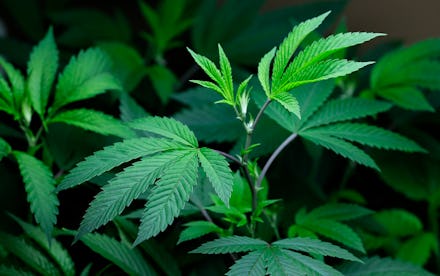Marijuana Legalization in Mexico City is the First Step

Mexico is known for many things: tequila, the Aztecs, and almost unimaginable levels of violence associated with the war on drugs. But the last one may change, at least a little, if several lawmakers in the nation’s capital get their way.
Legislators in Mexico City are proposing to decriminalize small amounts of marijuana possession — up to an ounce; currently, possession up to a sixth of an ounce is legal — and to establish “cannabis clubs” which would grow the plants for their members. The proposal, supported by the mayor of Mexico City, Miguel Mancera, comes on the heels of Washington and Colorado lifting restrictions and Uruguay’s lower house voting to legalize marijuana, as well as a rally in favor of legalization. Assemblyman Vidal Llerenas explained the motivation and goals of the proposal: “The war against drugs is a failure …. We cannot hope for a drug-free world. But we can hope to limit the damage and take the profits away from organized crime.”
Contrary to the hopes of the drug war’s advocates, the criminalization of drugs has increased violence and social decay — a staggering 60,000 people have been killed over the past six years in Mexico because of the drug war.
The criminalization of drugs is, metaphorically, a cure that is worse than the disease itself.
First, participants in the drug trade cannot go to the police or courts to resolve disputes. Furthermore, participants face tough penalties if caught. Dispute resolution thus needs to be fast and decisive, and violence suits these needs very well. Second, the police use violence to enforce the laws, which also raises the stakes for drug trade participants, making them more likely to arm themselves. The violence occasionally takes a truly terrifying turn when cops become overzealous.
Third, the illegality of the drug trade creates perverse incentives: The risk of jail time or violence leads people to desire higher compensation, which in turn provides an incentive to use violence to get the large payoffs.
Finally, countless nonviolent offenders are sent to prisons where they must associate with violent felons in order to survive — people who expect them to live a life of crime once free.
The decriminalization of possession is only part of the solution. Production and trade need to be legal, too. One positive aspect of the overall proposal is the establishing of cannabis clubs, which would sell subscriptions to a limited number of members. The purpose of the clubs would be to not only assist the government in the regulation of the drug, but also to help it circumvent federal Mexican laws against marijuana.
Taking away profits from the drug cartels is the other main goal of the proposal. The Mexican drug reform organization Cupihd believes the clubs could corner around 70% of the city’s market, which they estimate to be worth around $30 million per year.
While the decriminalization of possession and cultivation of small amounts of marijuana would only mitigate the effects of the drug war to an extent, it could prove to be a tipping point. Mexico City is the continent’s largest city, and when a city so close to the destruction of the drug war decides it isn’t working anymore, arguments in favor of criminalization seem about as flimsy as the smoke from a joint.